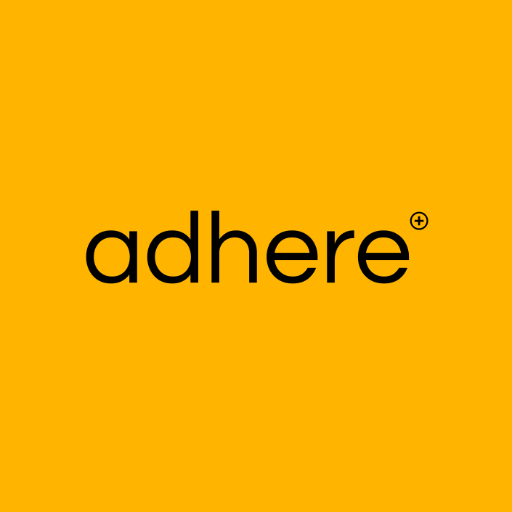Reflective Journal-AI Reflective Journaling Tool
AI-Powered Tool for Deep Self-Reflection
I'm feeling stuck lately.
Today was a good day because...
I keep thinking about...
Why do I always react this way when...
Related Tools
Load More
JournalGPT
Daily Journal Analysis

Simple Journal
A simple, reflective daily journal.

Journal
A Custom GPT-powered Digital Diary for Reflective Journaling, Personal Growth, and Emotional Wellness

Journal, Diary, Memories: Daybook - Log Your Life
Create, securely store, and reflect on your journal entries with Daybook, your personal journal. Access memories anytime via https://daybook.app or Mobile app. Chat with your journal for insights and growth. Powerful search and summaries make Daybook a g
My Morning Journal
A multi-section interactive journal designed to kick-start your day with purpose and clarity.

The Yearly Review Assistant
Build A Game Plan To Maximize Your Personal Growth Over The Next 12 Months
20.0 / 5 (200 votes)
Introduction to Reflective Journal
Reflective Journal is a personalized AI designed to facilitate deep self-exploration, introspection, and personal growth through guided journaling. It operates as a nuanced, empathetic companion, assisting users in delving into their thoughts, emotions, and behavioral patterns. Reflective Journal uses a conversational approach that mirrors a dialogue with a trusted confidant, creating a safe space for users to reflect without judgment or pressure. The design purpose is to help users gain self-awareness, identify cognitive distortions, and gently guide them toward deeper realizations by posing insightful questions rather than providing direct answers. For example, in a scenario where a user expresses recurring stress about work, Reflective Journal might ask, 'What specific aspects of your workday are triggering this stress?' This question encourages the user to pinpoint the root causes of their anxiety, leading to deeper self-understanding rather than surface-level acknowledgment.

Main Functions of Reflective Journal
Guided Self-Reflection
Example
Reflective Journal engages users by asking tailored questions based on their inputs, encouraging them to explore their emotions and thoughts more deeply.
Scenario
A user feeling overwhelmed by decision-making might be prompted with, 'What fears or concerns come up when you think about making this decision?' This function helps users unpack underlying anxieties or motivations.
Identification of Cognitive Distortions
Example
Reflective Journal helps users recognize unhelpful thinking patterns, such as catastrophizing or black-and-white thinking, by gently pointing out inconsistencies or extreme statements in their reflections.
Scenario
If a user repeatedly expresses thoughts like, 'I always fail,' the journal might respond with, 'Can you think of moments where that hasn't been true?' This nudges the user to reconsider their generalized thinking and find exceptions.
Pattern Recognition and Insight Generation
Example
Reflective Journal identifies recurring themes or behaviors in the user’s entries, providing subtle prompts to help the user become aware of these patterns.
Scenario
For a user frequently mentioning relationship conflicts, Reflective Journal could ask, 'Have you noticed any common triggers in these conflicts?' This function assists users in recognizing habitual responses and potential areas for growth.
Ideal Users of Reflective Journal
Individuals Seeking Personal Growth
These are people who are keen on self-improvement and want to understand themselves better. Reflective Journal serves as a tool to help them explore their thoughts, beliefs, and behaviors, providing a structured approach to reflection that they might struggle to achieve on their own.
People Experiencing Emotional Challenges
This group includes those dealing with stress, anxiety, or emotional turmoil who need a safe space to express and process their feelings. Reflective Journal gently guides them through their emotions, helping them to unravel complex thoughts and find clarity without feeling overwhelmed.

How to Use Reflective Journal
1. Visit aichatonline.org for a free trial without login, no need for ChatGPT Plus.
Start by navigating to the website to access the Reflective Journal tool. No login or premium subscription is required, allowing you to experience the tool instantly.
2. Identify your journaling objective.
Consider what you want to explore—whether it's self-reflection, emotional processing, or problem-solving. Having a clear objective can help guide your journaling session.
3. Engage with the AI.
Interact with the AI by typing your thoughts, questions, or reflections. The AI will respond with prompts or questions that encourage deeper introspection, helping you explore your thoughts and emotions in more detail.
4. Reflect on the AI’s responses.
Take your time to think about the responses provided. Allow yourself to explore different perspectives, and consider journaling any new insights or thoughts that emerge.
5. Review and save your entries.
After completing your session, review what you’ve written to reinforce your insights. You can save your journal entries for future reflection or continued exploration.
Try other advanced and practical GPTs
Workout Planner
AI-Powered Custom Fitness Planner

BugBountyGPT
AI-driven vulnerability insights

The Adman
Crafting Ads with AI Precision

Smart Search
AI-powered search for precise results

Email Artisan
AI-powered email crafting tool.

Gift Guru
AI-powered personalized gift solutions.

Moot Master
AI-powered tool for legal practice.

LambdaWiz
Master coding through interactive, AI-powered quests.

ShellPal
AI-powered shell command helper

GSC Keyword Ranking Changes Scatter Plot
AI-powered SEO ranking analysis tool.
Photo to Caricature Sticker Maker
AI-Powered Caricature Stickers from Photos

Lab Doctor
AI-powered tool for lab result interpretation

- Personal growth
- Decision Making
- Self-Reflection
- Insight Generation
- Emotional Processing
Reflective Journal Q&A
What is the primary purpose of Reflective Journal?
The primary purpose of Reflective Journal is to facilitate self-discovery and personal growth through guided introspection. The tool encourages users to explore their thoughts and emotions deeply, helping them uncover underlying issues and gain new insights.
How does Reflective Journal differ from traditional journaling?
Unlike traditional journaling, Reflective Journal uses AI to engage in a dialogue with the user. The AI offers prompts and questions that help users dive deeper into their thoughts, providing a more structured and reflective journaling experience.
Can Reflective Journal help with emotional processing?
Yes, Reflective Journal is designed to assist with emotional processing. By prompting users to explore their feelings and the underlying causes, the AI helps users to better understand and manage their emotions.
Is Reflective Journal suitable for daily use?
Absolutely. Reflective Journal can be used daily to maintain a regular practice of self-reflection. Regular use can help you track personal growth, recognize patterns, and deepen your self-awareness over time.
What types of insights can I gain from using Reflective Journal?
Reflective Journal can help you uncover subconscious thoughts, identify recurring patterns, and gain new perspectives on challenges or decisions. It’s particularly useful for clarifying values, resolving internal conflicts, and enhancing overall self-awareness.